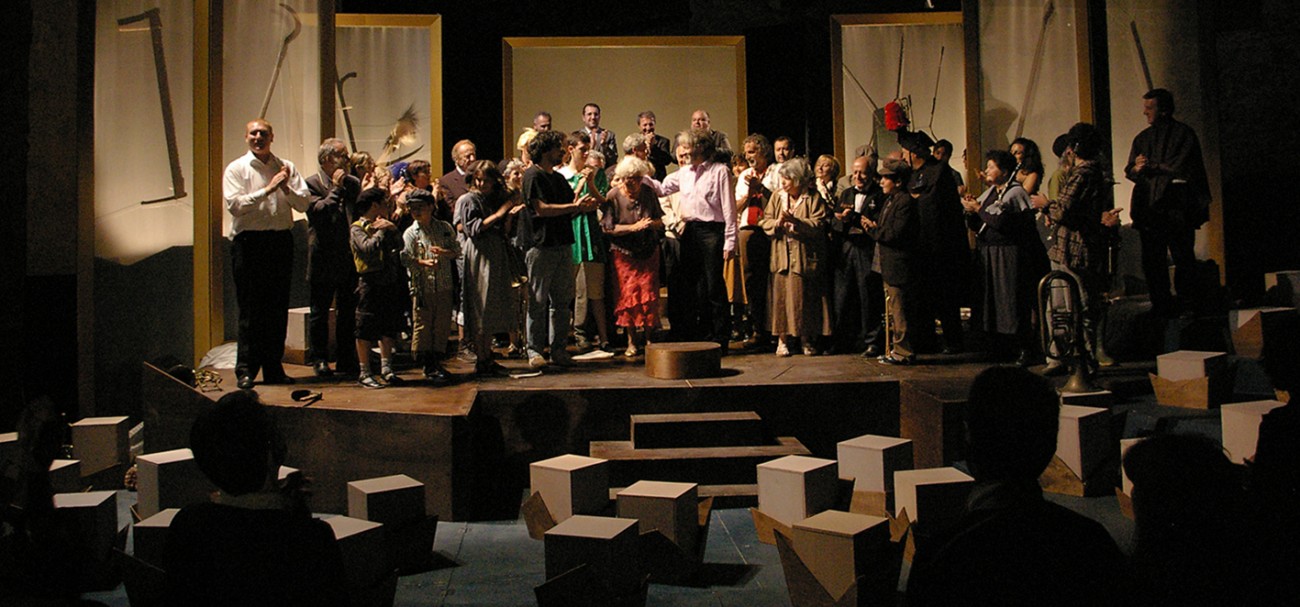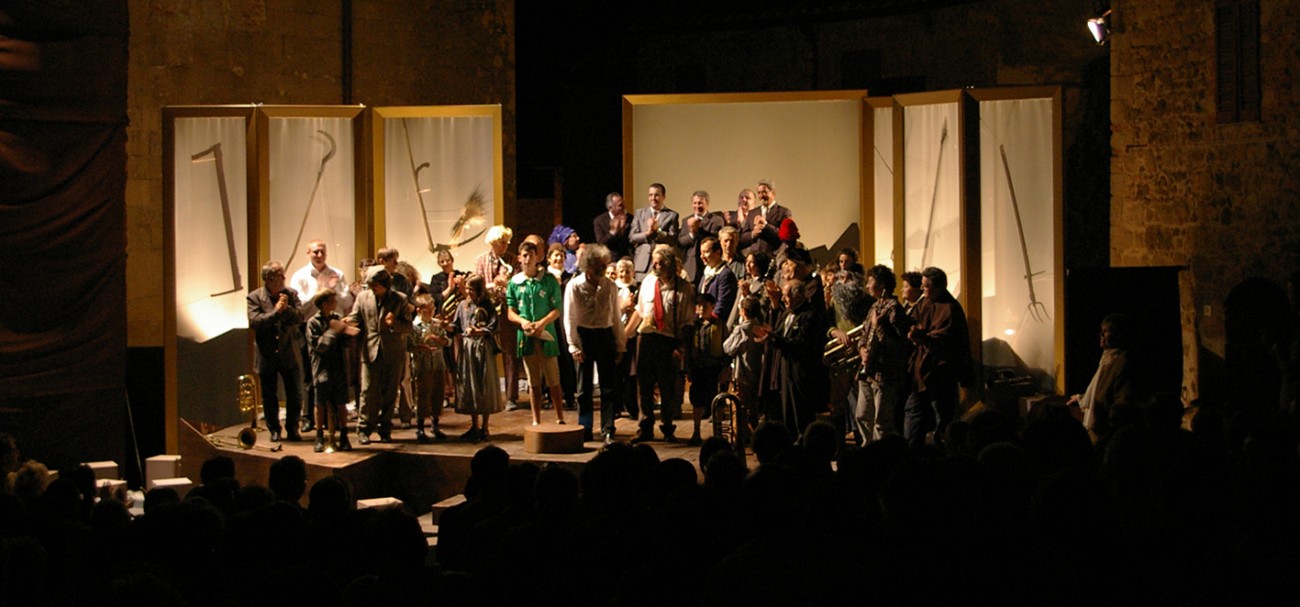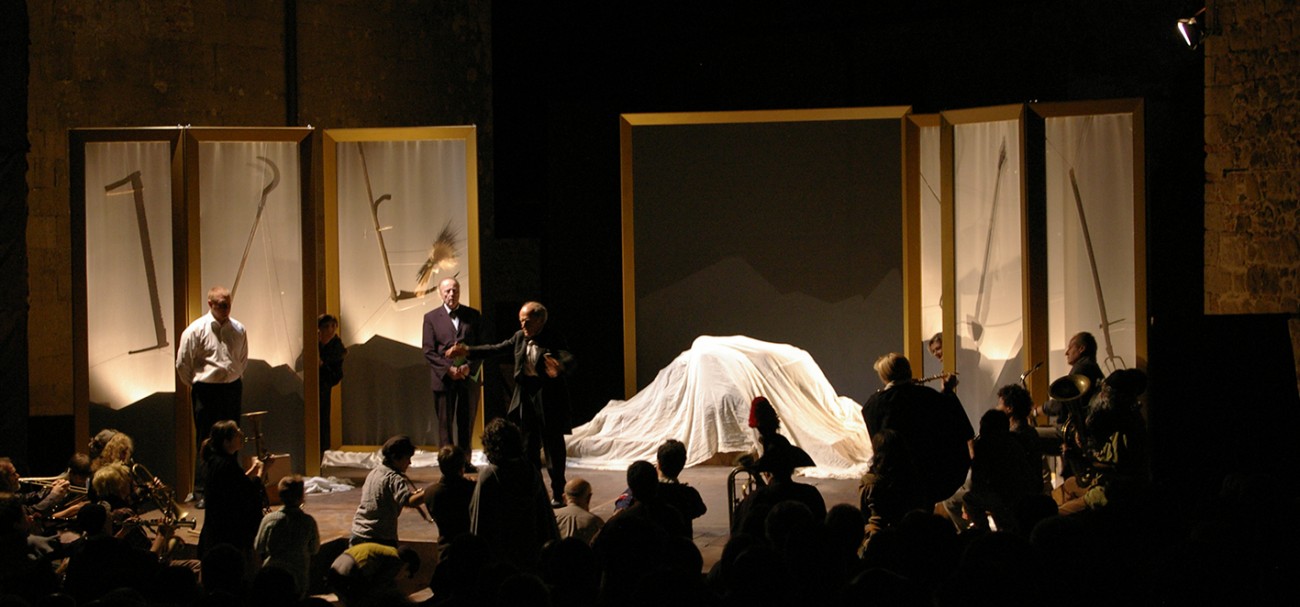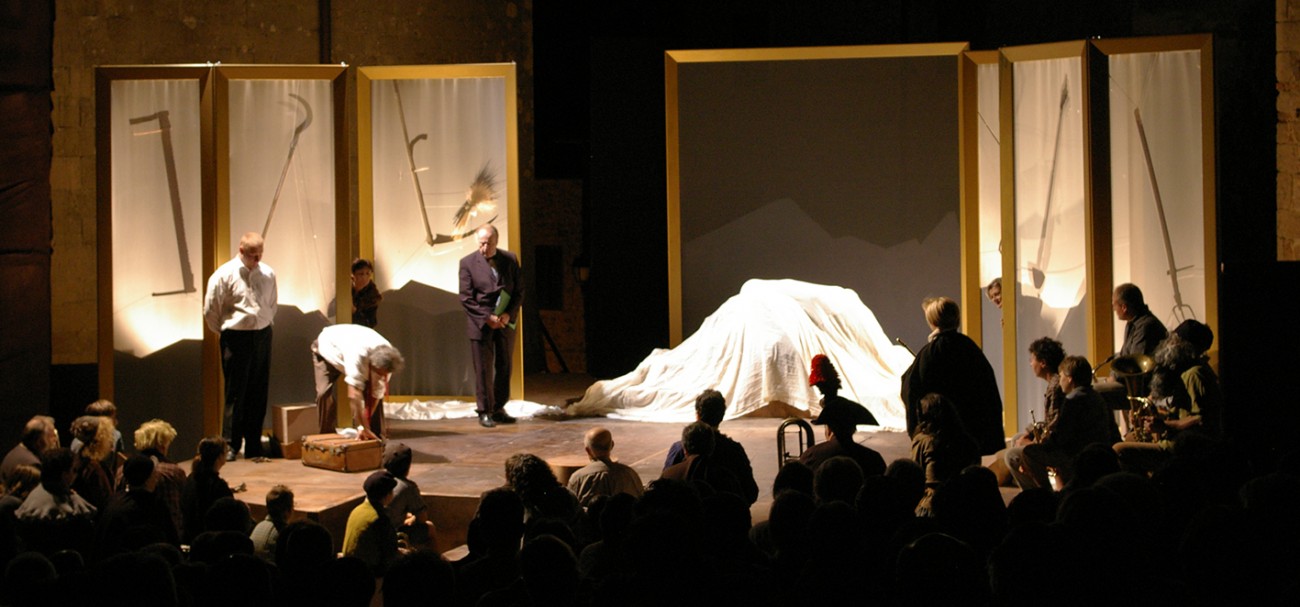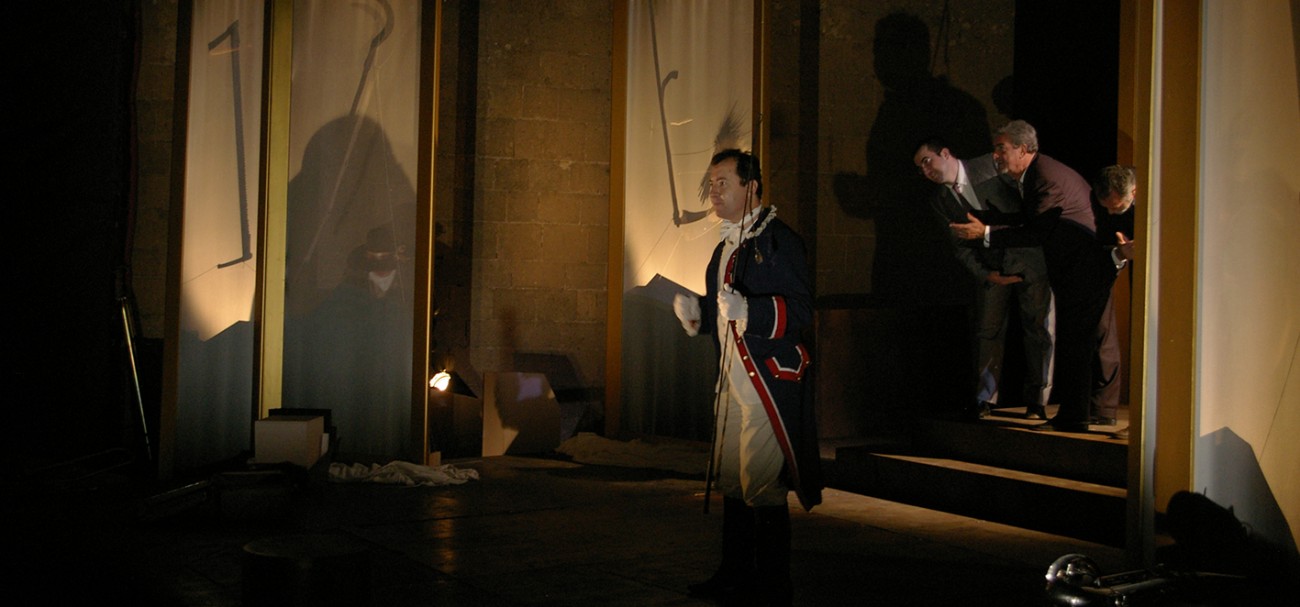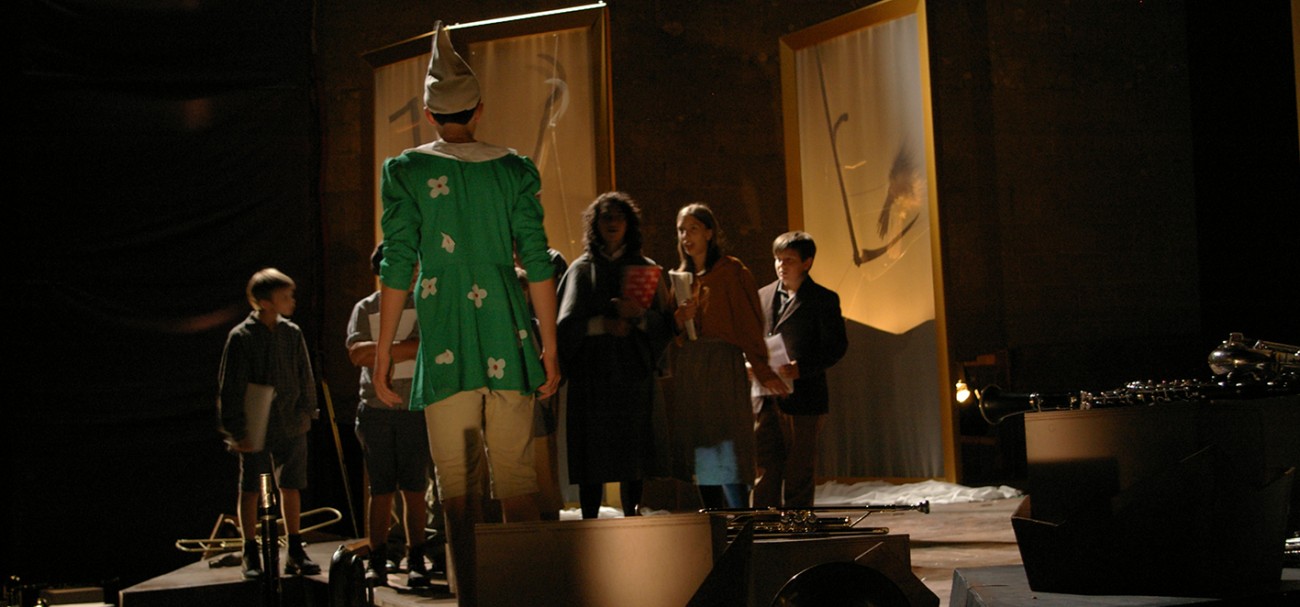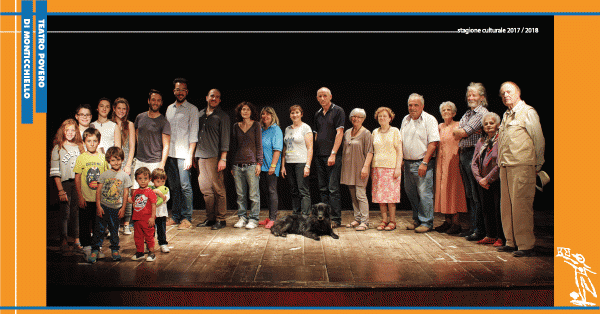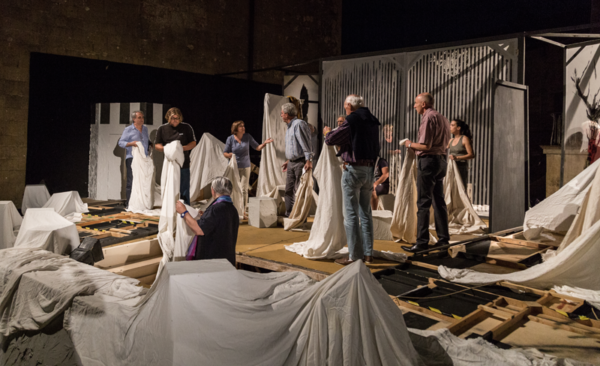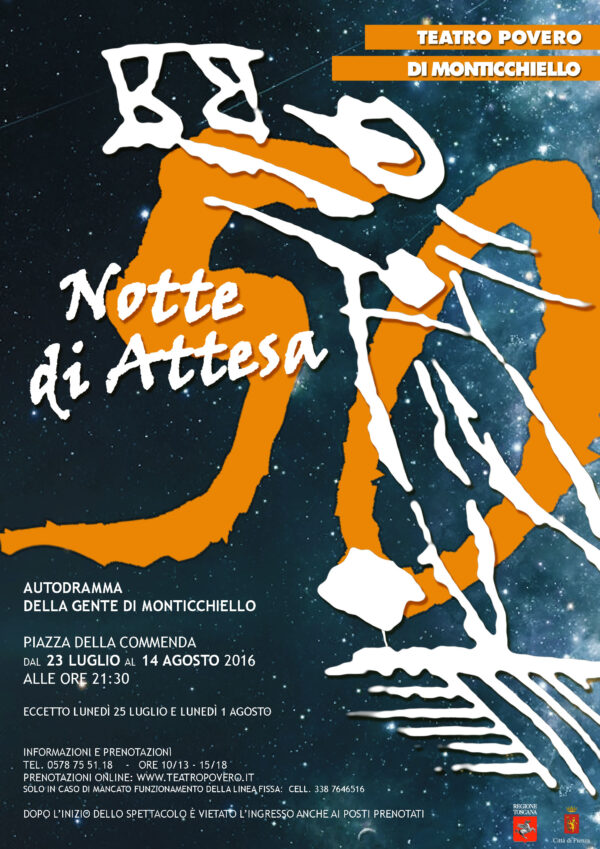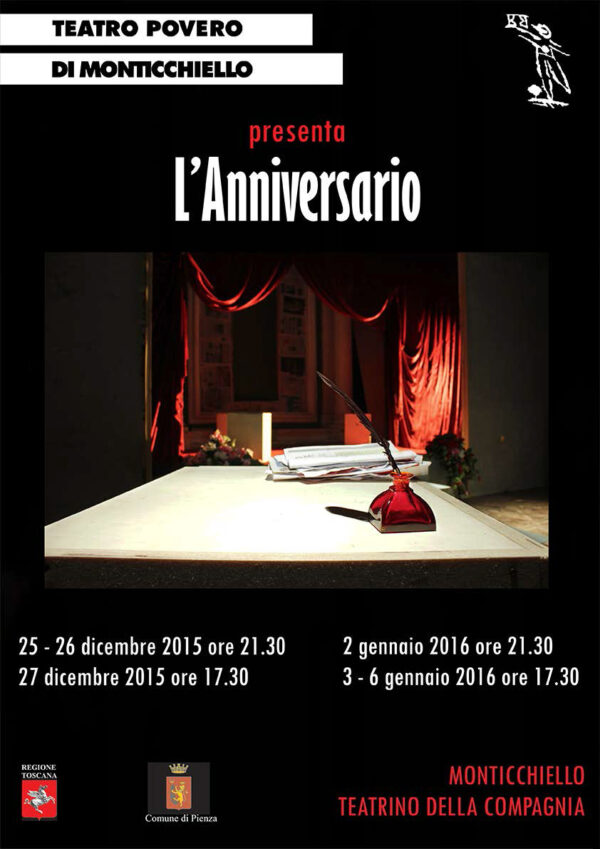The Teatro Povero had often enjoyed mounting, as a Christmas show, a theatrical version of Pinocchio, the classic story by Carlo Collodi. Throughout that tale, the wooden puppet Pinocchio, through a long series of mistakes and false starts, is trying desperately to become a real human being. The village of Monticchiello, like other small centres in Italy, wanted to be given the chance by politicians and bureaucrats to become an economically viable community, with proper services. The premise of this year’s show was that Pinocchio’s desires and frustrations could symbolize those of Monticchiello. Balocchi (toys, games, pastimes, even theatre itself) were assimilated with blocchi (blocks, obstacles, inability to move). Moreover, a recent change of government in Italy, the consolidation into power of Silvio Berlusconi, was viewed with ironic scepticism.
The invented situation was that Monticchiello was to benefit from a governmental project for the economic revival of small villages. An exhibition was planned, involving a collection of artefacts from the peasant past, including models of Pinocchio. But the village band found themselves ‘blocked’, mysteriously unable to perform a single note for the opening ceremony.
The exhibition turned out to be incompetent. The visiting officials showed bad faith, and one of them even smashed the Pinocchio model. The much-anticipated arrival of a Great Personality, who was never named, failed to materialize. The world and characters of Pinocchio increasingly took over the stage, and was re-written to offer close parallels with the injustice and corruption attributed to the current Italian political system. Was Pinocchio’s desire to become ‘a real human being’ really such a good idea, in the light of the examples of ‘humanity’ which were now being shown?
In a fantasy ending, the visiting officials were tidied away. The Pinocchio toy was repaired; village was seen to re-acquire support and identity from the persistence of its memories and peasant traditions. It also re-acquired its voice: the band was suddenly able to play again.

